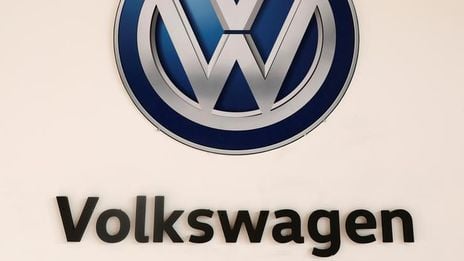The monthly survey of German analysts and investors by think tank ZEW gave the first insight into how the biggest business-related scandal in Volkswagen's 78-year history is affecting sentiment. It has coincided with a series of data releases showing German industrial orders, output and exports tumbling.
Mannheim-based ZEW said its index of economic sentiment plummeted to 1.9 points in October from 12.1 in September. That was the weakest reading since October 2014 and far below a consensus forecast for a reading of 6.0.
"The emissions scandal at Volkswagen and sluggish growth in emerging markets are dampening the economic outlook for Germany," ZEW President Clemens Fuest said in a statement.
But he added that a positive domestic environment and recovering euro zone made it unlikely that the German economy would slip into recession.
Volkswagen is Europe's largest carmaker and is one of Germany's largest employers, with more than 270,000 jobs in its home country and even more working for suppliers.
German Economy Minister Sigmar Gabriel and leading industry figures dismissed any prospect of long-term economic fallout from the Volkswagen scandal.
"I do not expect the problems at Volkswagen to have lasting effects on the German economy," Gabriel said.
A senior official told Reuters on Tuesday that the German government was getting ready to trim its estimate for growth this year to 1.7 percent from 1.8 percent.
The auto industry accounted for 17.9 percent of Germany's 1.1 trillion euros (1 trillion pounds) in exported goods last year, according to Deutsche Bank, and has enjoyed above-average export growth since 2009.
"I'm absolutely convinced that the Volkswagen case will not lead to Germany being damaged as an industrial location," said Ulrich Grillo, head of the BDI Federation of German industries.
EXPORT MOTOR SPUTTERS
The VDMA engineering association did not expect the Volkswagen scandal to have a direct effect on the sector.
"We assume that our customers can and will distinguish between an incident at a single firm -- albeit a shocking one -- and the daily work of many thousands of engineering operations, big and small alike," VDMA chief Reinhold Festge said.
"Therefore we do not expect direct effects. It is important now, however, that the events at VW are clarified quickly and completely," he said. "We will do everything to ensure that the 'Made in Germany' label retains its shine."
Disappointing data last week showed German exports fell in August by the largest amount since the height of the global financial crisis, while industrial output posted its steepest drop in a year and orders slid.
ZEW's index tracking current conditions dropped to 55.2 points from 67.5 points in September, far undershooting expectations for a drop to 64.7. The survey, in which 217 analysts and institutional investors took part, was conducted between Sept. 28 and Oct. 12.
Thomas Gitzel, economist at VP Bank, blamed the Volkswagen scandal for the sharp drop in the ZEW index. "The VW emissions scandal probably depressed the mood among financial market analysts," he said.
But a record-low jobless rate, decent wage rises and low interest rates will keep the German economy on track, he said, adding that the influx of refugees "is like a mini economic stimulus programme due to higher government spending".
(Editing by Noah Barkin and Catherine Evans)
By Michelle Martin





